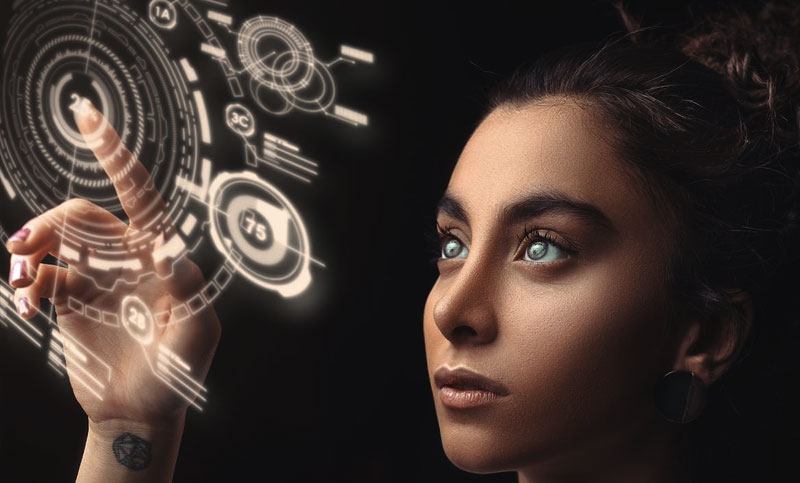Technological Innovations that Revolutionized the Today’s Classroom
July 21, 2023One of the top most crucial ways that digital innovation is revolutionizing education is via the implementation of technology in the classroom. Technology gave several possibilities to make interactive and engaging classes that are highly personalized to every student's demand.
For instance, teachers can use online applications to make videos, quizzes, and games which students can gain access from their laptops or tablets. They can also take help from digital tools to track every student's progress that gives them to offer targeted feedback and support.
Digital innovation in education is enabling latest ways of learning, like blended learning and flipped classrooms. In blended learning, students learn traditional classrooms as well as online, while in flipped classrooms, students watch classes and do homework online, and then attend classes to get engaged and about what they have learned. These models offer them to understand at their own pace and give more flexibility than traditional classroom learning.
Technological Revolutions in Education
The future of education is changing rapidly with the help of digital innovation especially through the use of data analytics. Data analytics tools give schools to get and analyze data on every student’s performance that can be useful to identify spaces where students require more support. This information can then be used to create personalized learning plans for each student, which can help them succeed academically.
Digital innovation is also creating simpler solutions for schools to better reach the parents and the community. Schools are taking help from social media and several different digital tools to share details about school events, student achievements, and various other updates. They can also utilizing the online tools to communicate with parents and give them latest updates on their kid’s progress.
Additionally, digital innovation is creating education more accessible to students who may face tough situations while going to traditional schools. For instance, online schools and MOOCs (massive open online courses) offer learning process from any place, at any time. This is helpful for students who reside in remote locations or who have other responsibilities, like work or family, to continue their education
However, with all of these transformations comes the demand for new skills and new ways. Teachers must be proficient in understanding and the usage of digital tools as well as data analytics to support their student's learning. They will also require creating engaging and interactive lessons that incorporate technology in resourceful ways.
Students will be more self-directed learners who can take advantage of the flexibility and personalization that innovation gives. They will require be able to use technology effectively and responsibly, and also to be effective with others online. Parents will also get more involved in their kid’s education, as innovating education creates an easier platform for them to track their kid’s progress and discuss the same with teachers.
Impact of Innovation in Education
Innovating education is transforming the both learning and teaching journey, and it has a crucial impact on the global education system. The impact it has on education is profound and far-reaching.
Below-mentioned are few ways innovation is the transforming education sector:
-
Personalized learning: With digital innovation, it is now possible to make personalized learning plans for every student. This means that students can learn better and focus on the spaces where they require more support. Personalized learning is important for students to gain a full potential and future-ready for success.
-
Collaborative learning: Innovation in education has made it easier for students to collaborate with each other and work on projects together. Digital paltforms such as Google Docs and online forums make it simpler for students to exhibit their ideas and collaborate on assignments.
-
Blended learning: Innovation in education has made it possible to blend traditional classroom learning with online learning. Students can attend classed from the comfort of their own homes, from anyplace, and also at any time. It gives huge flexibility and convenience for students who have other responsibilities, such as work or family.
-
Access to education: Digital innovation has made education more accessible to students who may have difficulty attending traditional schools. Online schools and MOOCs (massive open online courses) give students to learn remotely at any time.
-
Data-driven decision-making: Digital innovation has made it possible to gather and analyze data on student performance. This data can be utilized to identify spaces where students require more support and to plan for personalized learning of each student. Data-driven decision-making is used to help schools enhance the student results and ensures that every student gets the support they require to succeed.
Digital innovation is transforming the future of education. It is offers latest opportunities for personalized learning, data analytics, and collaboration. However, it also requires new competencies and innovative ways of thinking about education.
Teachers, students, and parents are required to adapt to these transformations to fully take reap benefits which digital innovation in education presents. By doing so, one can make a great type of school that is highly engaging, more flexible, and well-effective at future-ready to students for the challenges.
Top ways Educators are bringing innovation in the Classroom
To get the digital innovation in the classroom, there are many things that educators can do:
-
Embrace technology: Educators must embrace technology and utilize it in the resourceful ways to improve the learning experience. They must use digital platforms to make interactive and engaging lessons, track student performance, and collaborate with students.
-
Create a culture of innovation: Educators must establish a culture of innovation in the classroom. Educators must encourage everyone to think creatively as well as to handle risks. They must also be open to brand new ideas and willing to try different approaches of teaching and learning
-
Provide professional development: Educators should receive professional development in digital innovation and data analytics. This will help them become proficient in using digital tools and data to support their student's learning
-
Foster collaboration: Educators should foster collaboration among students. They must encourage students to come together on projects and share their ideas, knowledge and examples. Collaboration offers students to learn from every other presented ways and build crucial social and emotional skills.
-
Emphasize personalized learning: Educators should emphasize personalized learning and create learning plans that are tailored to each student's needs. Through emphasized personalized learning students will get a path to unleash their complete potential as well as to prepare them for being completely ready for their success in the future.
To Summarize
Innovation is transforming the future of education in way to teach and learn. It has a profound impact on the education system and offers latest opportunities for personalized learning, collaboration, and data-driven decision-making. Educators are embracing technology, creating a culture of innovation, offering professional development, by fostering collaboration, and emphasizing the personalized learning.




